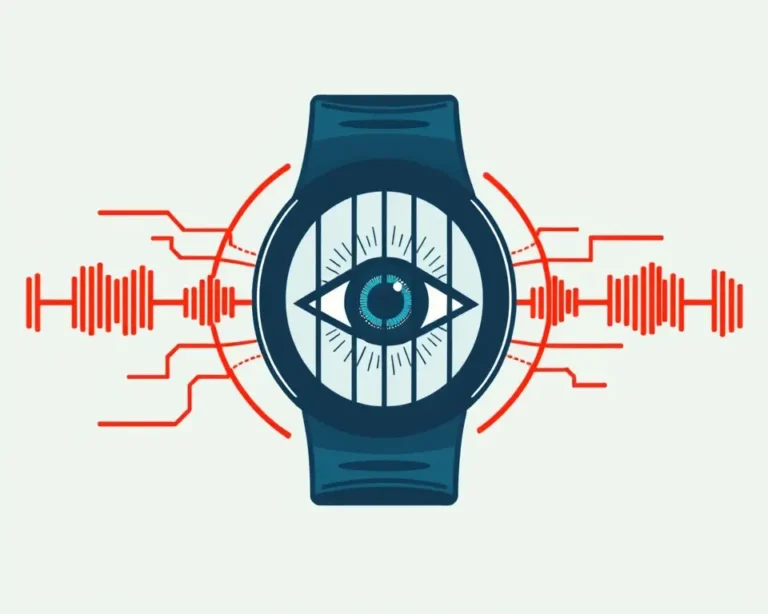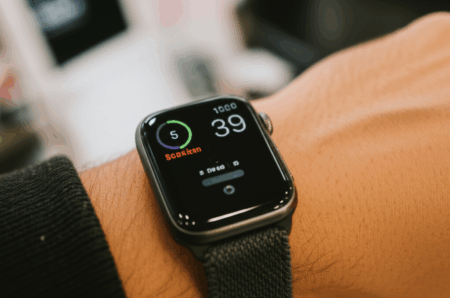Fitness trackers have become ubiquitous. These devices, worn on our wrists or integrated into our clothing, diligently monitor our steps, heart rate, sleep patterns, and more. They offer valuable insights into our health and fitness, motivating us to lead more active lives. But beneath the surface of these seemingly benign gadgets lies a complex web of data collection, storage, and potential misuse. This article delves into the world of fitness tracker data, exploring what information is gathered, where it goes, and the privacy implications for users.
What Data Do Fitness Trackers Collect?
Fitness trackers are sophisticated devices equipped with a range of sensors that capture a variety of data points. The specific data collected varies depending on the device, but generally includes:
- Activity Levels: Steps taken, distance traveled, active minutes, and types of activities performed (running, swimming, cycling, etc.)
- Heart Rate: Continuous monitoring of heart rate, including resting heart rate and heart rate variability (HRV).
- Sleep Patterns: Duration and quality of sleep, including time spent in different sleep stages (light, deep, REM).
- Calorie Expenditure: Estimated calories burned throughout the day, based on activity levels and personal information.
- Location Data: GPS tracking of routes taken during outdoor activities.
- Biometrics: Some trackers also measure body temperature, blood oxygen saturation (SpO2), and even track menstrual cycles.
- User-Inputted Data: Information you manually enter, such as weight, height, age, and dietary habits.
This data paints a detailed picture of your daily life, exercise habits, and overall health. But what happens to all this information once it’s collected?
The Journey of Your Data
The data collected by fitness trackers typically follows this path:
- Data Recording: The wearable device uses its sensors to record data about your body and activities.
- Data Transfer to Smartphone: The fitness tracker syncs with a companion app on your smartphone, usually via Bluetooth.
- Data Upload to Cloud: The smartphone app uploads the data to the manufacturer’s cloud servers.
- Data Processing and Analysis: The manufacturer processes and analyzes your data to provide insights, track your progress, and offer personalized recommendations.
- Potential Sharing with Third Parties: This is where things get complicated. Your data may be shared with third-party partners, depending on the company’s privacy policies and your consent settings.
Who Has Access to Your Data?
Understanding who has access to your fitness tracker data is crucial for making informed decisions about your privacy. Here are the primary entities that may have access:
- The Fitness Tracker Company: The company that manufactures and operates the fitness tracker has direct access to your data stored on its cloud servers.
- Third-Party Apps and Services: Many fitness trackers allow you to connect your data to other apps and services, such as nutrition trackers, workout platforms, or social media. These third parties gain access to your data based on the permissions you grant them.
- Advertisers: Fitness tracker companies may share anonymized or aggregated data with advertisers for targeted advertising purposes.
- Insurance Companies: Some health insurance companies offer discounts or incentives to policyholders who share their fitness tracker data. This allows insurers to assess risk and potentially personalize premiums.
- Employers: Some employers offer wellness programs that involve the use of fitness trackers. In these cases, employers may have access to aggregated data about employee activity levels.
- Researchers: Fitness tracker data can be valuable for research purposes, and companies may share anonymized data with researchers studying various health conditions or fitness trends.
- Government Agencies: In certain circumstances, government agencies may compel fitness tracker companies to disclose user data for legal or investigative purposes.
Privacy Concerns and Risks
The extensive data collection and potential sharing practices of fitness trackers raise several privacy concerns:
- Data Security Breaches: Fitness tracker companies are vulnerable to data breaches, as demonstrated by the 2018 Under Armour MyFitnessPal breach that exposed the usernames, passwords, and email addresses of over 150 million users. A data breach can expose your personal health information to malicious actors who may use it for identity theft, fraud, or other nefarious purposes.
- Lack of HIPAA Protection: The Health Insurance Portability and Accountability Act (HIPAA), a US law that protects the privacy of medical information, does not apply to data collected by many wearable devices and health and wellness apps. This means that your fitness tracker data is not subject to the same stringent privacy protections as your medical records held by doctors and hospitals.
- Data Sharing with Third Parties: Many fitness tracker companies share user data with third-party advertisers, data brokers, and other entities. This data can be used to create detailed consumer profiles and target you with personalized ads, potentially without your explicit consent.
- Insurance Premium Discrimination: If your health insurance company has access to your fitness tracker data, it could potentially use this information to adjust your premiums based on your activity levels and health habits. For example, if your data reveals a sedentary lifestyle, your premiums could increase.
- Employment Discrimination: Employers who have access to employee fitness tracker data could potentially use this information to make discriminatory employment decisions.
- Re-identification of Anonymized Data: Even if your data is anonymized, it may still be possible to re-identify you using machine learning techniques and other data sources. This means that your supposedly anonymous data could be linked back to your identity and used in ways you did not intend.
- Location Tracking and Stalking: Fitness trackers with GPS capabilities can track your location, raising concerns about stalking and harassment. A study by North Carolina State University found that a leading fitness-tracking app, Strava, had a vulnerability in its aggregated data usage that could enable bad actors to physically locate individual users.
- Data Misuse by Governments: Some governments may compel or coerce fitness tracker companies to turn over user data, effectively using these companies as proxies for state surveillance and espionage.
What Can You Do to Protect Your Privacy?
While the privacy risks associated with fitness trackers are significant, there are steps you can take to protect your data:
- Read the Privacy Policy: Before using a fitness tracker, carefully read and understand its privacy policy. Pay attention to what data is collected, how it is used, and with whom it is shared.
- Adjust Privacy Settings: Most fitness trackers offer a range of privacy settings that allow you to control what data is collected and shared. Take the time to review these settings and adjust them to your preferences.
- Limit Data Sharing: Be cautious about connecting your fitness tracker to third-party apps and services. Only grant access to apps and services that you trust and that have a legitimate need for your data.
- Turn Off Location Tracking: If you are concerned about location tracking, disable the GPS function on your fitness tracker or smartphone app.
- Use a Strong Password: Protect your fitness tracker account with a strong, unique password that you do not use for other online accounts.
- Enable Two-Factor Authentication: If available, enable two-factor authentication (2FA) to add an extra layer of security to your account.
- Keep Your Device Updated: Regularly update your fitness tracker’s software and firmware to patch security vulnerabilities.
- Be Careful with Social Media: Avoid sharing sensitive personal information on social media, especially information related to your fitness tracker data.
- Opt Out of Data Sharing: If your fitness tracker company offers an option to opt out of data sharing with third parties, take advantage of it.
- Consider a Privacy-Focused Device: Some fitness tracker companies prioritize user privacy and offer devices with enhanced security features and transparent data practices. Research your options and choose a device that aligns with your privacy values.
- Advocate for Stronger Privacy Laws: Support efforts to strengthen data privacy laws and regulations to protect consumers from the misuse of their personal information.
The Future of Fitness Tracker Data Privacy
The debate over fitness tracker data privacy is likely to continue as these devices become more sophisticated and integrated into our lives. There is a growing recognition of the need for stronger privacy protections and greater transparency in the collection, storage, and use of personal health data.
Some potential developments in the future of fitness tracker data privacy include:
- More Stringent Regulations: Governments may enact stricter regulations governing the collection and use of personal health data by fitness tracker companies.
- Enhanced Privacy Features: Fitness tracker companies may incorporate more robust privacy features into their devices and apps, such as end-to-end encryption and granular data control options.
- Increased User Awareness: Consumers may become more aware of the privacy risks associated with fitness trackers and demand greater control over their data.
- Data Cooperatives: New models may emerge that allow users to collectively own and control their data, giving them more power to decide how it is used.
- Privacy-Preserving Technologies: Advances in privacy-preserving technologies, such as differential privacy and federated learning, may enable fitness tracker companies to analyze data without compromising individual privacy.
Striking a Balance
Fitness trackers offer numerous benefits, providing valuable insights into our health and motivating us to lead more active lives. However, it is crucial to be aware of the privacy risks associated with these devices and take steps to protect your data. By understanding what data is collected, where it goes, and who has access to it, you can make informed decisions about your privacy and enjoy the benefits of fitness trackers without compromising your personal information. Striking the right balance between functionality and data protection is essential in the age of wearable technology.







